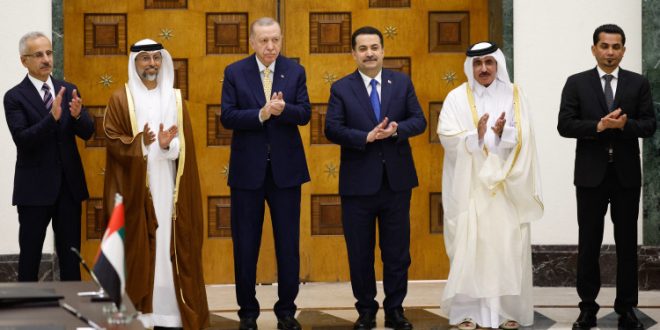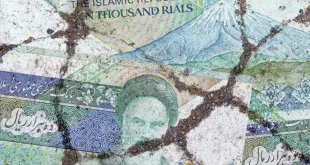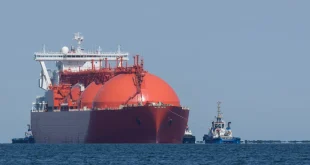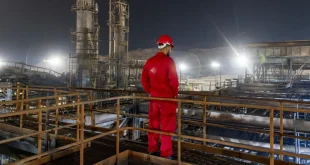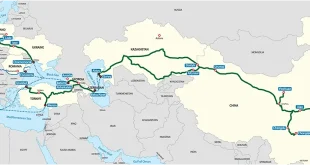On July 21, 2024, Baghdad inaugurated a new power line connecting Turkey and Iraq to handle Turkish electricity imports. This 115-kilometer (71-mile) transmission line is expected to deliver 300 megawatts of energy to a power station west of Mosul with the aim of supplying northern Iraq, including the regions of Nineveh, Salahuddin, and Kirkuk.
The new power line comes at a critical time, as Iraqis experience sweltering summer conditions and persistent power outages, a result of decades of conflict and poor infrastructure that have made energy-rich Iraq reliant on imports, especially from Iran. In an effort to increase its energy security and diversify its energy sources, Iraq is integrating the new power line into a broader strategy to join the regional energy grid. The project, according to Iraqi Prime Minister Mohammed Shia al-Sudani, is a “strategic” step to link Iraq with its neighbors and reduce its reliance on Iranian gas.
Iraq is operationalizing this new power line with the intention of ensuring a more stable energy future for the country and reshaping its geopolitical alliances. This strategic shift, combining new energy links with Turkey and the United States, is expected to lessen Iran’s influence in Iraq and could negatively impact bilateral ties, depending on how Tehran reacts going forward.
Broader regional implications
The installation of the new electricity line reflects shifting geopolitical dynamics in the region. Iraq is actively seeking to expand its energy partnerships with Turkey, and the new connection is a crucial part of the larger Development Road Project, a Turkish effort aimed at strengthening commercial and infrastructure ties. Ankara is seeking to reshape regional dynamics in its favor and increase its influence in the geopolitical sphere. At the same time, Baghdad is also making a broader push to strengthen its ties with the Gulf Cooperation Council (GCC) and other regional actors, like Jordan, including on the energy front. Iraq recently began importing power from Jordan and, speaking on July 21, Prime Minister Sudani said Baghdad aims to complete a connection with the GCC electric grid “by the end of this year.”
Iran’s electricity imbalance and the future of exports to Iraq
This comes at a time when Iran is facing its own challenges as an energy supplier. Tehran has had difficulty achieving its energy output targets and faces major issues with its electrical supply. The Ministry of Energy has admitted that power outages are a recurring problem, particularly in the summer, when high temperatures and heavy demand cause outages that continue for several hours, affecting both the residential and commercial sectors.
Old infrastructure is a major part of the problem: Instead of adopting contemporary combined-cycle systems, many power plants operate inefficiently using gas and steam technology. The power system is also strained by high consumption rates brought on by government-subsidized energy prices. Iran has substantial reserves of natural gas, but repeated failed efforts to boost its production of the fuel prevent the country from producing enough power.
Historically, Iran has provided around 1,200 megawatts of power per day to Iraq along with, under the terms of a 2013 deal, about 25 million cubic meters of natural gas. Tehran and Baghdad inked a new agreement in March 2024 under which Iran pledged to supply around 50 million cubic meters of natural gas per day for five years. However, the imbalance in Iran’s electricity supply poses a danger to the country’s energy industry and its capacity to export power. This relationship faces additional challenges as well, including the temporary nature of US sanctions waivers that allow Iraq to purchase Iranian electricity; recent efforts to promote the diversification of Baghdad’s external energy suppliers through projects like the new power line between Iraq and Turkey; and Iraq’s own domestic energy development drive, including agreements with the United States and other nations to boost electricity generation and explore new energy partnerships.
Gulf, US outreach
The goal of Iraq’s current outreach to Gulf and American allies is to lessen Iran’s significant military, political, and economic sway. Iraqi Prime Minister Sudani signed memorandums of understanding (MOUs) on commerce and energy during his April trip to the United States and Turkish President Recep Tayyip Erdoğan’s June visit to Iraq. A strategic move toward establishing stronger economic connections with Saudi Arabia and the United Arab Emirates is also underway, with the aim of further reducing its dependence on Iran. Iraq’s inclusion in regional initiatives spearheaded by the United States, such as the GCC power grid, is part of this effort.
The US is supporting Iraq’s efforts to strengthen its energy security, providing funding for new energy infrastructure projects and the collection of associated gas from its oilfields. Iraq’s reliance on Iranian energy has declined in recent years as a result of such efforts, falling from an estimated 40 percent to 25 percent, with the aim of achieving energy self-sufficiency by 2030. As seen by retaliatory acts like the drone attack on Iraq’s Khor Mor gas field in April 2024, Iran views these developments as a danger. Tensions are likely to remain elevated going forward, although Iraq’s closer links to the US and the Gulf states may provide some protection against Iranian pressure.
Iran’s position as a significant power supplier to Iraq is in jeopardy as Baghdad continues to diversify its energy sources. By reducing its dependence on Iranian electricity and enhancing its domestic energy security, Iraq’s new power connection from Turkey might lessen Iran’s influence in the country’s energy market. Depending on Iran’s response to its diminishing influence in Iraq, this strategic shift, incorporating new energy linkages with Turkey and the US, may well strain relations between Baghdad and Tehran.
Umud Shokri is a Washington-based energy strategist and senior visiting fellow at George Mason university. In his current role as a Black Sea State Department Title VIII Fellow, Dr. Shokri is immersed in extensive research and analysis focusing on Azerbaijan’s energy transition and preparations for COP29.

